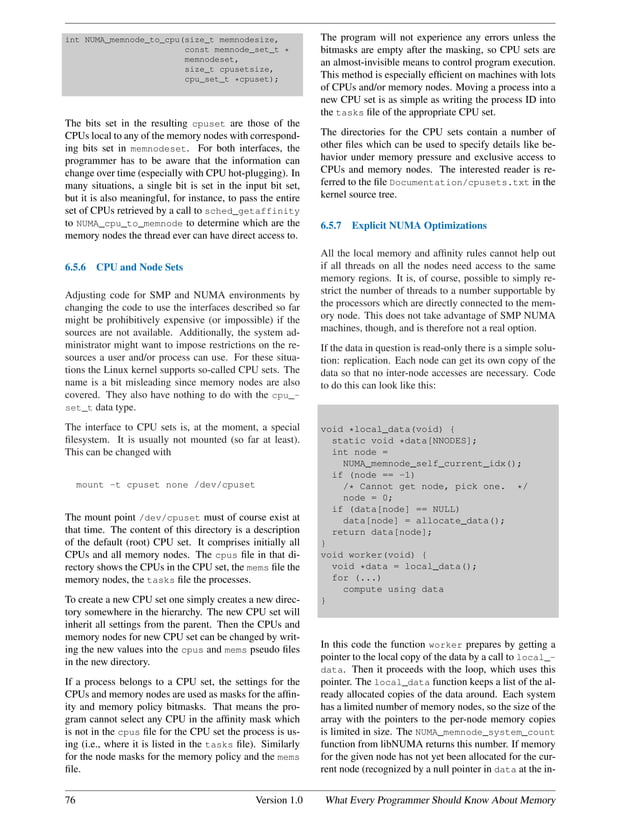
What everyprogrammershouldknowaboutmemory PDF
Caches are a map: data keyed by their location in main memory. This key can grow too large if cache granularity is too small. This combined with the fact that RAM is more effective when multiple words are fetched at once leads to "lines" of data being stored in the cache, normally 64 bytes each.
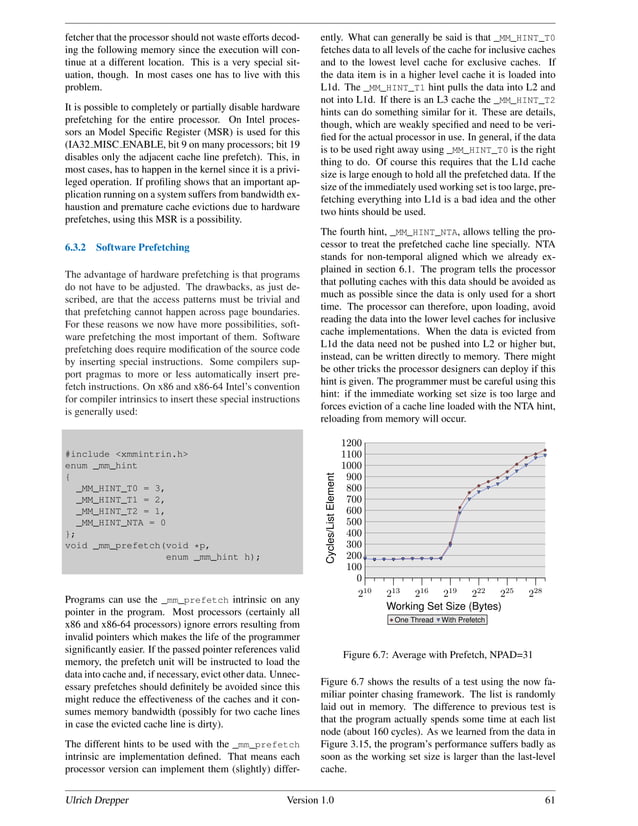
What everyprogrammershouldknowaboutmemory PDF
"What every programmer should know about memory" is definitely worth to read, but, well, I don't think it's for "every programmer". It's more suitable for system/embedded/kernel guys. Share. Follow edited Sep 24, 2014 at 17:22. Michael Currie. 14k 9 9 gold.
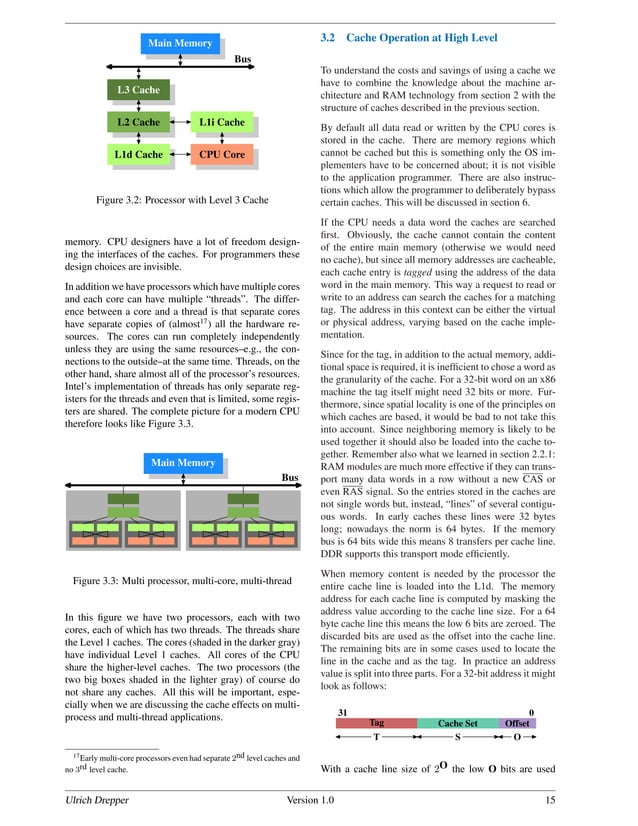
What everyprogrammershouldknowaboutmemory PDF
What every programmer should know is the latency of the various memory types (cache, RAM, virtual) and their respective sizes.. For example, it's required knowledge for understanding memory latencies and BIOS memory timings (valuable information for overclockers). Even if programmers spend most of their time working dozens of layers of.
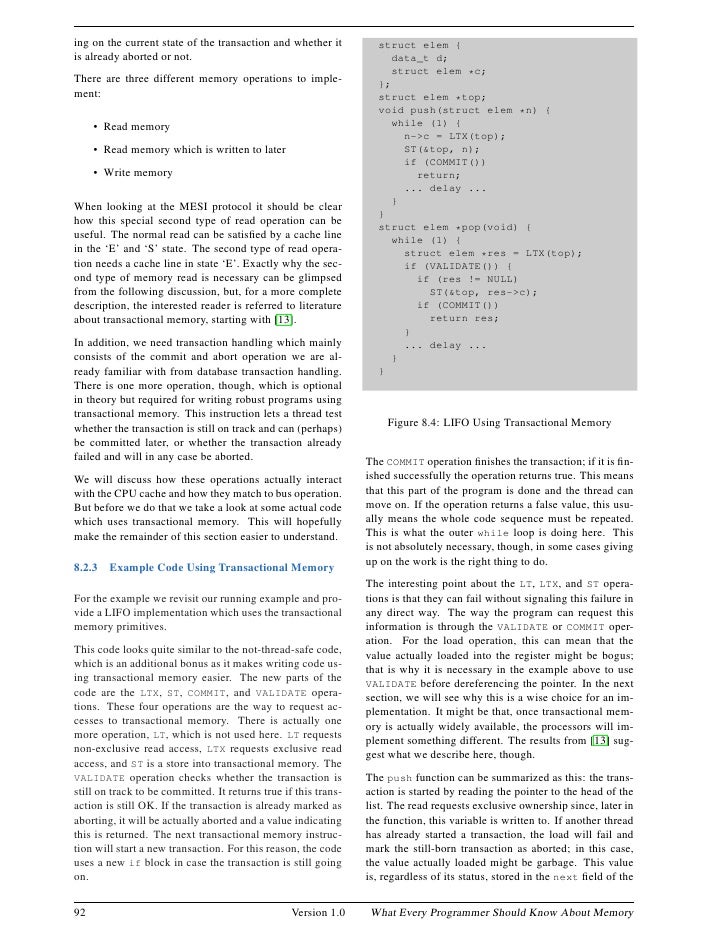
What everyprogrammershouldknowaboutmemory
1 Introduction In the early days computers were much simpler. The various components of a system, such as the CPU, memory, mass storage, and network interfaces, were developed together and, as a result, were quite balanced in their performance. For example, the memory and network interfaces were not (much) faster than the CPU at providing data.
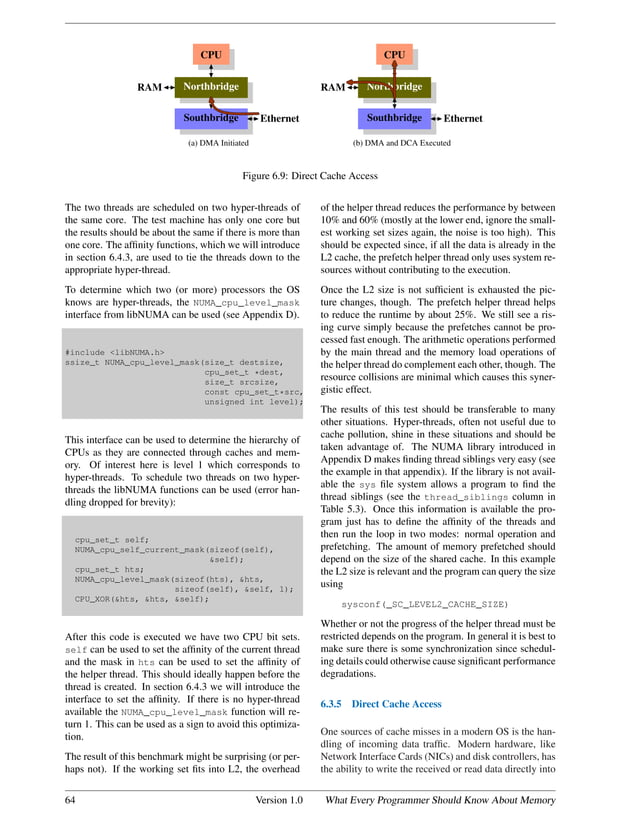
What everyprogrammershouldknowaboutmemory PDF
As CPU cores become both faster and more numerous, the limiting factor for most programs is now, and will be for some time, memory access. Hardware designers have come up with ever more sophisticated memory handling and acceleration techniques-such as CPU caches-but these cannot work optimally without some help from the programmer.

What Every Programmer Should Know About Memory 程序员必须知道的内存知识 简介 哔哩哔哩
What every programmer should know about memory (2007) [pdf] (freebsd.org) 203 points by quackulus 6 months ago | hide | past | favorite. in slightly more modern context, worth looking at. karmakaze 6 months ago | prev | next. I get by with latency numbers every programmer should know[0]. Knowing a bit about how cache sharing works is helpful.
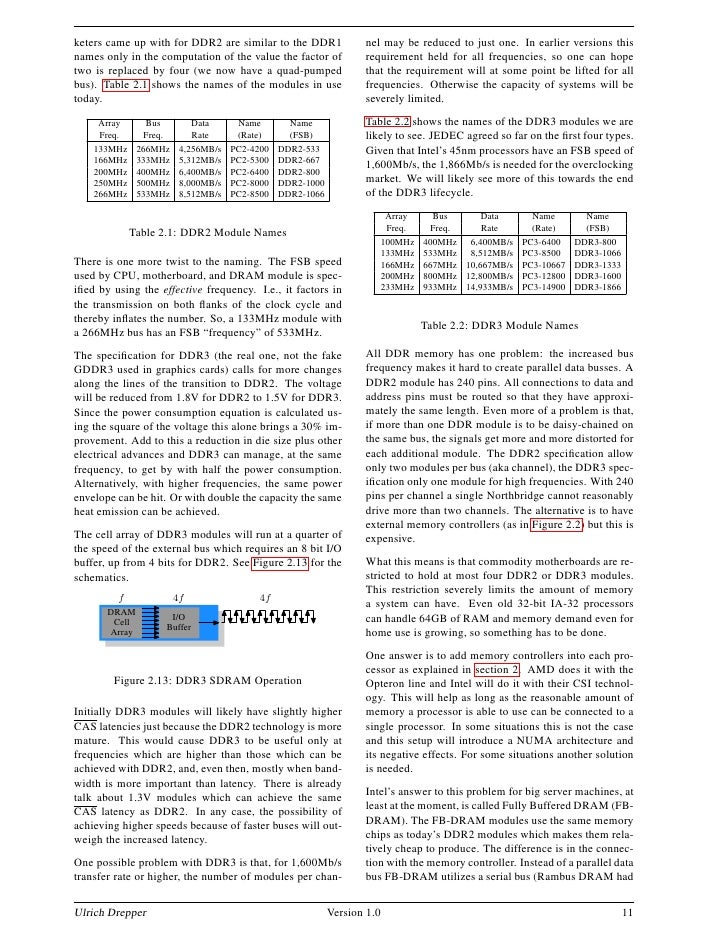
What everyprogrammershouldknowaboutmemory
What programmers should know about Memory Shankar Viswanathan BLU July, 2023 Agenda Memory types & hierarchy DRAM SRAM (used in caches) Brief description of: Coherency Consistency What's with the title? Paper by Ulrich Drepper from 2007
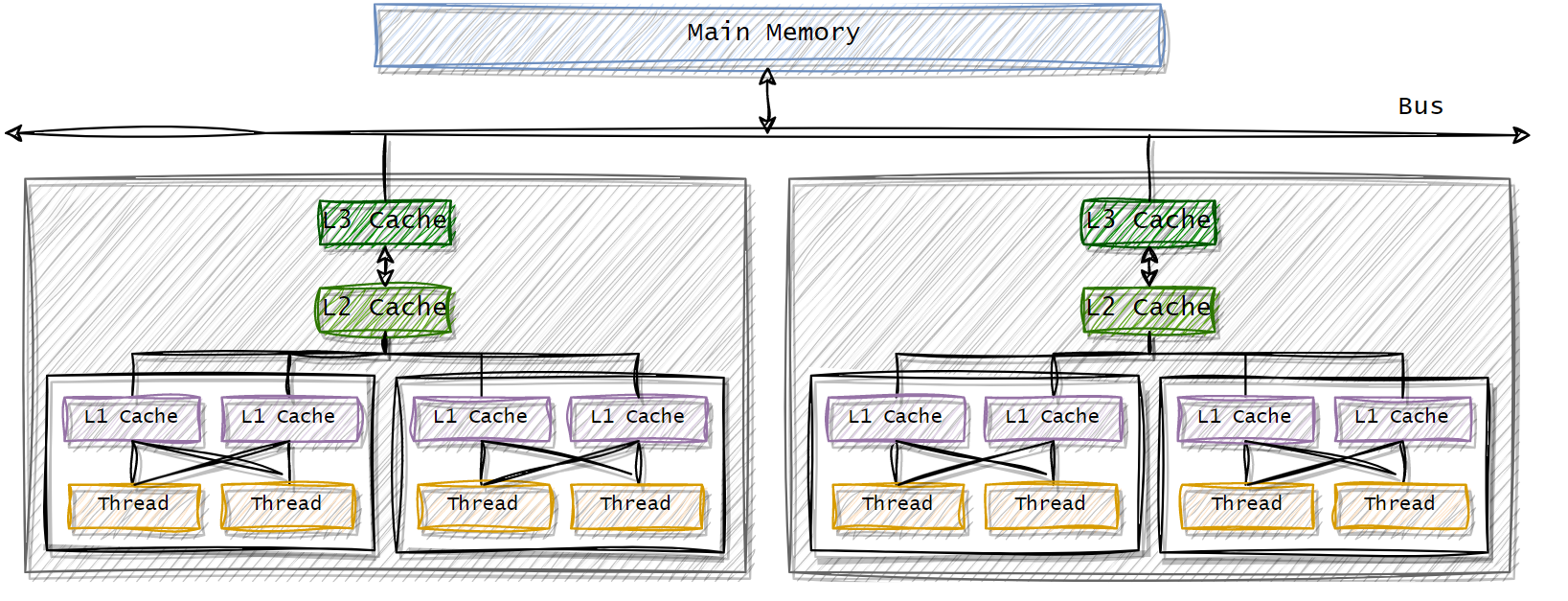
Analysis of 'What Every Programmer Should Know About Memory'
[ Editor's note: this is part 6 of Ulrich Drepper's "What every programmer should know about memory"; this part contains the second half of section 6, covering the optimization of multi-threaded code. The first half of this section was published in part 5; please see part 1 for pointers to the other sections. ] 6.4 Multi-Thread Optimizations

What Every Programmer Should Know About Memory Ulrich Drepper [PDF Document]
Cache writes policies. Write-through cache: when data is modified in the cache, main memory is updated at the same time. Write-back cache: cache lines are marked as "dirty" on write, and lines are written to main memory only when the cache line is evicted. This performs better is memory isn't shared between processes.
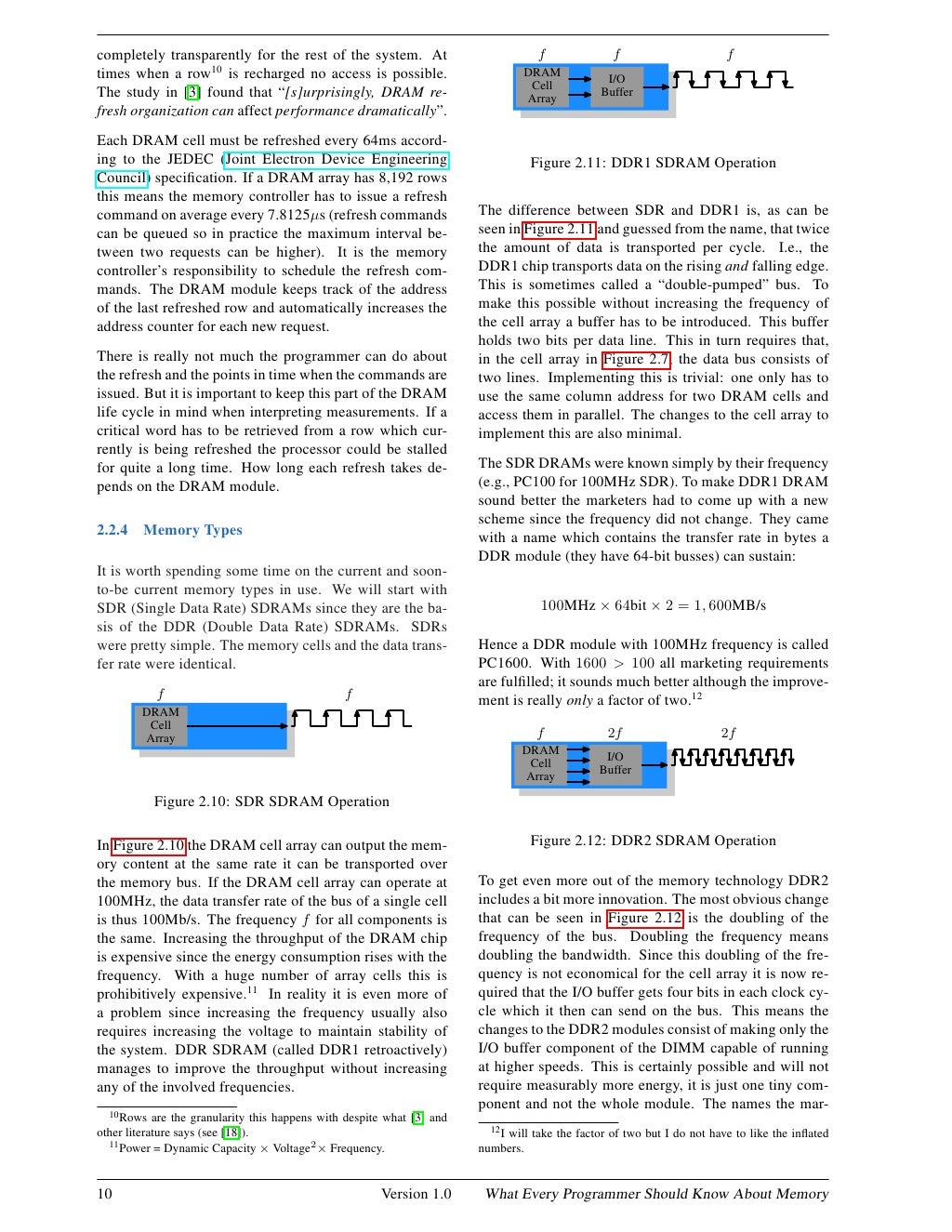
What everyprogrammershouldknowaboutmemory
This paper offers a very good starting point in terms of a) illustrating the mechanisms of the memory system b) explaining important optimizations and c) introducing tools to understand the memory system. I believe the paper deserves its title. Every programmer should know about what is in the paper. At 2019, this paper is only more relevant.
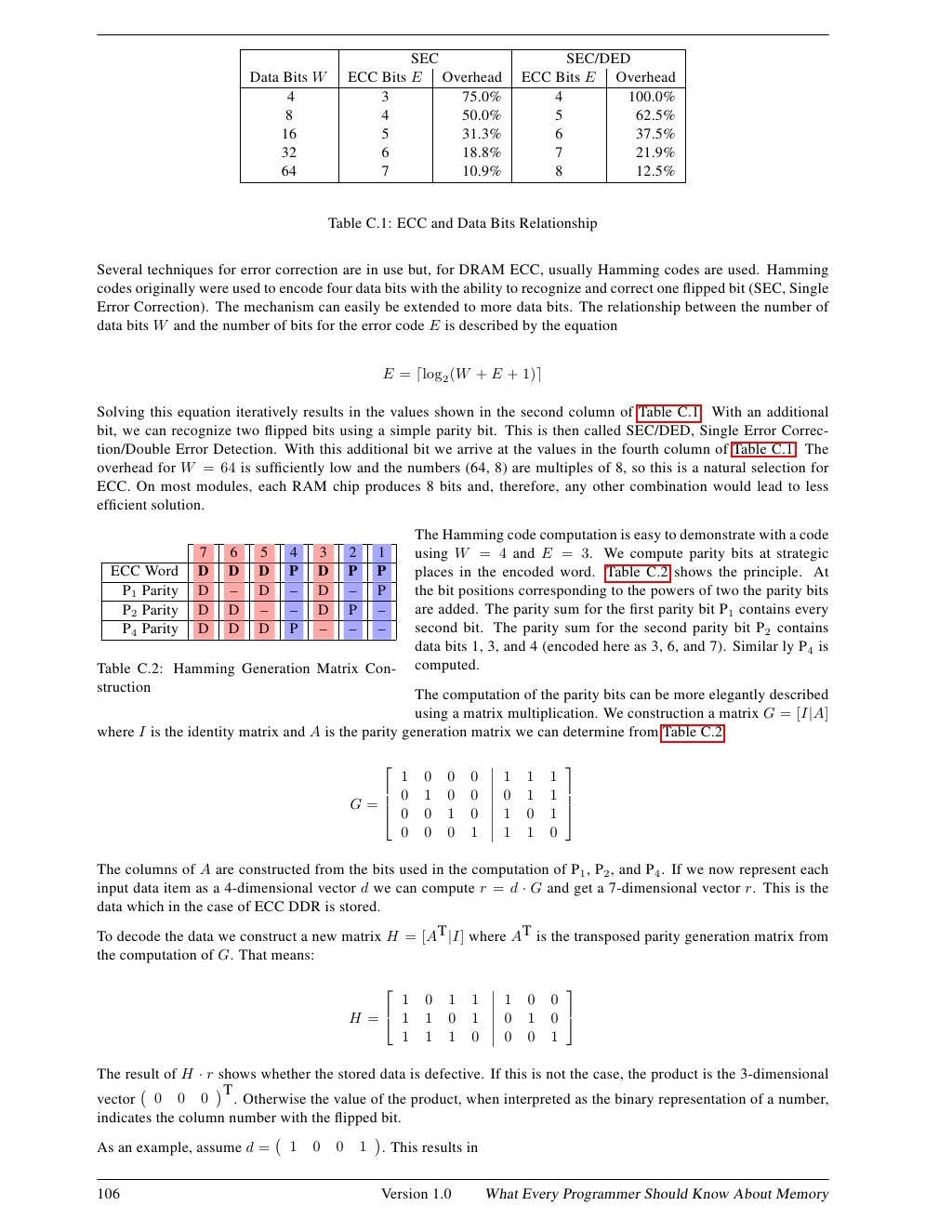
What everyprogrammershouldknowaboutmemory
The structure of memory subsystems in use on modern commodity hardware is explained, illustrating why CPU caches were developed, how they work, and what programs should do to achieve optimal performance by utilizing them. As CPU cores become both faster and more numerous, the limiting factor for most programs is now, and will be for some time, memory access. Hardware designers have come up.

what every programming program should know about me today
October 23, 2007 This article was contributed by Ulrich Drepper [ Editor's note: welcome to part 5 of Ulrich Drepper's "What every programmer should know about memory". This part is the first half of section 6, which discusses what programmers can do to improve the memory performance of their code.
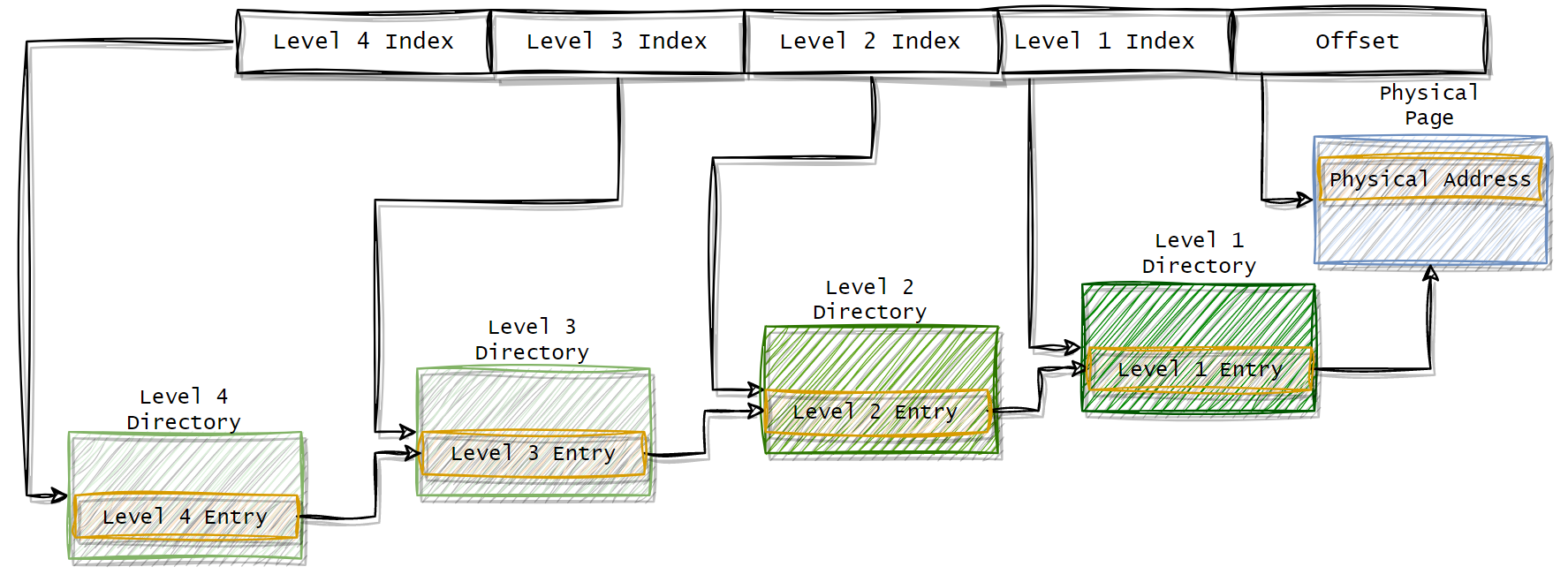
Analysis of 'What Every Programmer Should Know About Memory'
classic paper "What Every Computer Scientist Should Know About Floating-Point Arithmetic" [12]. This pa-per is still not widely known, although it should be a. 2 Version 1.0 What Every Programmer Should Know About Memory. 2 Commodity Hardware Today It is important to understand commodity hardware be-cause specialized hardware is in.
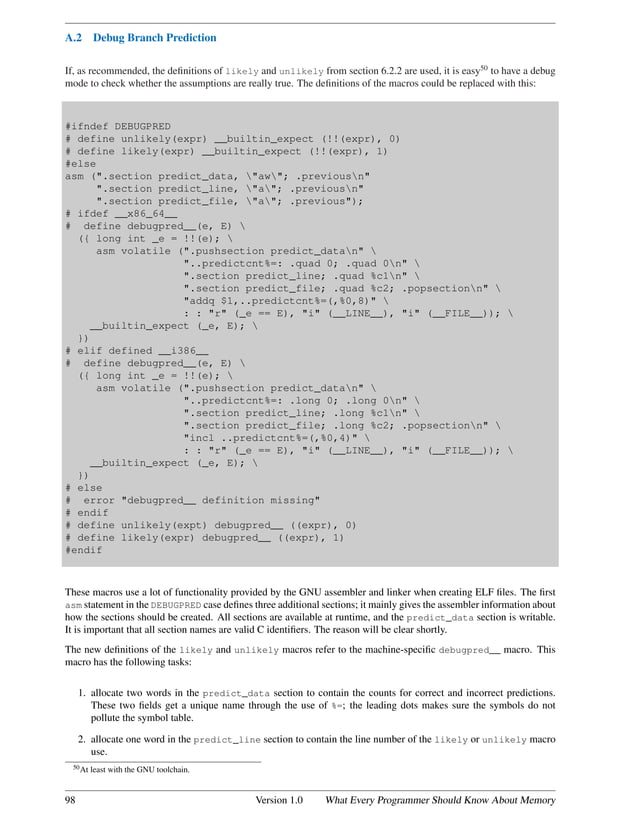
What everyprogrammershouldknowaboutmemory PDF
Ulrich Drepper. 31 Dec 2006 -. TL;DR: The structure of memory subsystems in use on modern commodity hardware is explained, illustrating why CPU caches were developed, how they work, and what programs should do to achieve optimal performance by utilizing them. View 20 related papers. Abstract: As CPU cores become both faster and more numerous.

What every programmer should know about memory, Part 1 Linux Kernel, Programmer
A collection of (mostly) technical things every software developer should know about - GitHub - mtdvio/every-programmer-should-know: A collection of (mostly) technical things every software developer should know about
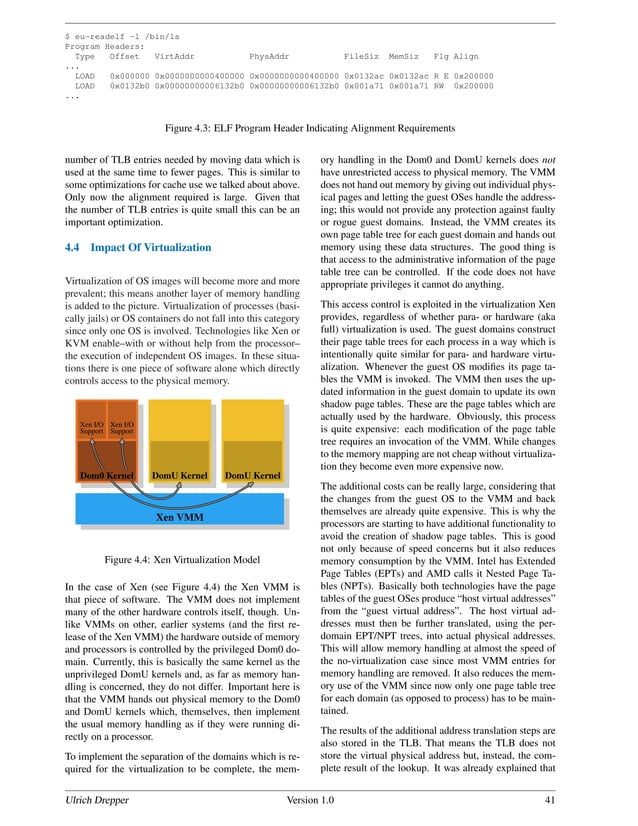
What everyprogrammershouldknowaboutmemory PDF
Mar 28, 2022 2 Image by Author This article will introduce a very important programming basic knowledge — memory management. You may have a vague idea of it or often ignore it. But knowing it as a developer can broaden our horizons, improve our cognition, and solve memory problems faster and more safely. So come check it out with me! Question